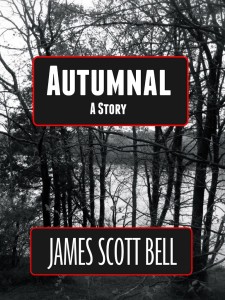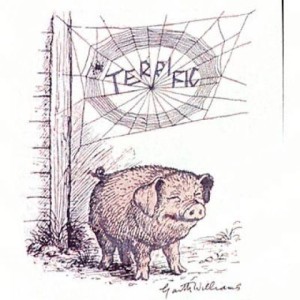
Time, like an ever-rolling stream,
Bears all its sons away;
They fly forgotten, as a dream
Dies at the opening day.
–Isaac Watts
* * *
We live in a four-dimensional world. For most of us, the three dimensions of space can be manipulated at will because we can move around and change our position on the Earth. We can climb the stairs in our homes, sail across oceans, or fly through the air. However, we have no control over the fourth dimension: time.
Albert Einstein famously told us that time is relative, and I sort of understand that. But the clock on my office wall doesn’t know anything about relativity. It just ticks away, recording one second after another. And despite what our friends in quantum physics tell us, my time goes in only one direction. Yes, I’ve heard of Kurt Gödel, worm holes, and theories that say traveling backwards in time is possible, but to my knowledge, no one has accomplished that feat. I know I haven’t. So, for the purposes of this post, we’ll use this definition from dictionary.com:
Chronology – noun – the sequential order in which past events occur.
Unless you’re writing a time-travel fantasy book, the events in the story you’re creating occur in a chronological sequence. But the telling of it doesn’t have to. Authors are a lucky bunch because we can tell a story in any way we want to. Even in a non-fantasy novel, we can take time and twirl it around our little fingers, make it do somersaults, or leap forward and backward in great bounds.
But why would we do that? Well, to keep the reader interested, of course. And how do we do it? One way is by the use of flashbacks.
* * *
What is a flashback scene?
Smartblogger.com defines a flashback as
“a literary device where a story breaks away from the present narrative to delve into the past, by showing us a past event or a scene from the past.”
According to novelist James Hynes in his Great Courses lectures entitled Writing Great Fiction,
“One of the fundamental principles of plotting is the withholding of information.… A plot is the mechanism by which the writer decides what information to withhold, what information to reveal, and in what order.”
If the reader knows there was some disturbance in the protagonist’s past, but doesn’t know the full story, he/she will be compelled to keep reading to find out. When the author decides to reveal that fact, it may be effective to use a flashback scene.
The Power of a Flashback Scene
According to writingmastery.com,
“The beauty of flashbacks is that they give writers the freedom to fully show instead of tell the details of a traumatic or significant event in a character’s history, at the moment when it will be most powerful.”
How to move from the present to the past
Transitioning to a flashback scene can be achieved by a character remembering something from his/her past. Or it can be a break in the story that presents some important background information that is crucial to the narrative. In either case, it’s important that the reader understand where he/she is in the story. To that end, transition can be accomplished in several ways:
A change in verb tense: If the story is written in the past tense, switching to past perfect will clue the reader in.
The use of italics: Although some readers don’t like long passages in italics, I’ve seen this device used and found it effective.
A specific date: A flashback can be a separate chapter or scene that is clearly dated to indicate a previous time.
However you decide to handle a flashback, it’s a device that can add strength to your story.
A Word of Caution
In his book Plot & Structure, James Scott Bell warns us about the overuse of this plotting device.
“There is an inherent plot problem when you use flashbacks—the forward momentum is stopped for a trip to the past…. If such information can be dropped in during a present-moment scene, that’s always a better choice.”
But if you feel the flashback scene is necessary, then JSB advises to make sure it works as a scene.
“Write it as a unit of dramatic action, not as an information dump.”
* * *
Examples of flashbacks in literature
The entire book is a flashback
Most of the articles I read about flashback scenes describe a character who remembers something, and the flashback scene ensues from that. One example is The Catcher in the Rye which starts with Holden Caulfield’s first-person account of his current situation. “If you really want to hear about it, the first thing you’ll probably want to know is where I was born, and what my lousy childhood was like,…”
Then the second paragraph begins with a transition to a flashback: “Where I want to start telling is the day I left Pencey Prep.” The rest of the book is a continuation of the flashback.
Other examples of stories written almost entirely in flashback are Wuthering Heights and To Kill a Mockingbird.
Flashback scenes sprinkled throughout the book
Another type of flashback is used by Jane Harper in her debut novel, The Dry. The story begins when Federal Agent Aaron Falk returns to his hometown to attend a funeral. As the story progresses, we learn that Falk left his hometown as a child after being suspected of the murder of one of his friends. As the reader gets more and more intrigued about Falk’s history, Harper fills in backstory through the use of flashbacks dropped in strategic chapters to show Falk and his friends as youngsters. These scenes are written in italics so it’s easy to know when you’re reading a flashback scene. The main narrative is written in Falk’s third-person POV, but the flashback POVs vary.
A single flashback scene to describe a life-changing moment in the plot
I included a flashback scene in my latest novel, Lacey’s Star. When Cassie Deakin’s uncle regains consciousness after being attacked and seriously injured by thieves, he explains that the assailants stole a package he had recently received from his unreliable and long-lost Vietnam war buddy, Sinclair. I wanted to include a flashback scene at that point in the narrative as a powerful display of Sinclair’s drunken despair changing to hope when he finds what he thinks is proof that his young sister was murdered 40 years earlier. In order to ensure the reader understood it was a flashback, I subtitled the chapter “Alaska – Three Weeks Earlier” and wrote it in italics. The novel is written in Cassie’s first-person POV, but the flashback is in Sinclair’s third-person.
* * *
And just in case those guys are right about time travel, here’s a clock that might be useful:
* * *
So, TKZers. What do you think about flashback scenes? Have you used them in your stories? What’s your opinion of the power of the flashback?
* * *

When Sinclair Alderson wakes up from a drunken binge to find himself in the home of a kind stranger, he pours out his despair over the death of his young sister 40 years earlier. Only then does he discover the note that could identify her killer.
Buy on Amazon, Barnes & Noble, Kobo, Google Play. or Apple Books.







